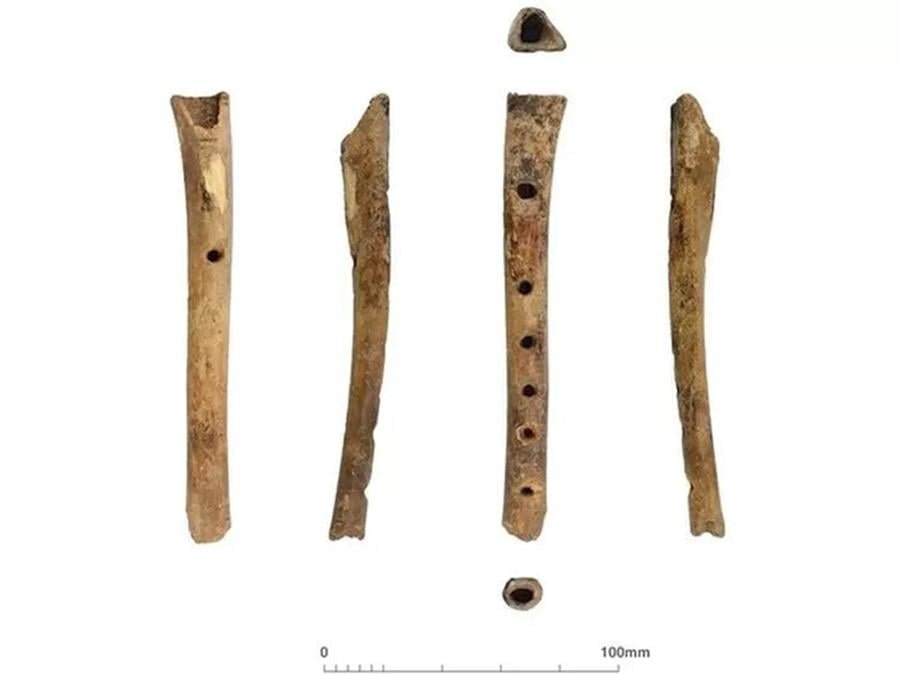Archaeologists from Cotswold Archaeology discovered a unique bone flute known as a ‘fipple flute’ during excavations in Herne Bay, Kent, on England’s southeastern coast.

It was unearthed in a pit with a ‘sunken-featured building,’ a common feature of north Kent’s later medieval landscape that is often associated with activities such as bread-baking and brewing.
Due to medieval pottery discovered nearby, it is believed to date to the 13th-15th centuries.
The musical instrument was made from the tibia shaft of either a sheep or a goat. The flute was expertly carved and has five finger holes along the top and one underneath.

Although such bone flutes were common, they are now rare archaeological finds. Despite the lack of a mouthpiece, the well-preserved object is otherwise complete, according to Cotswold Archaeology.
A comparable example, associated with a mid-14th century coin, was discovered in 1964 at Keynsham Abbey in Somerset.
More examples are found across Europe, notably in England, including Winchester, Flaxengate, Lincoln; Coppergate, York; and a pair of reed pipes from Ipswich, Suffolk.”


































